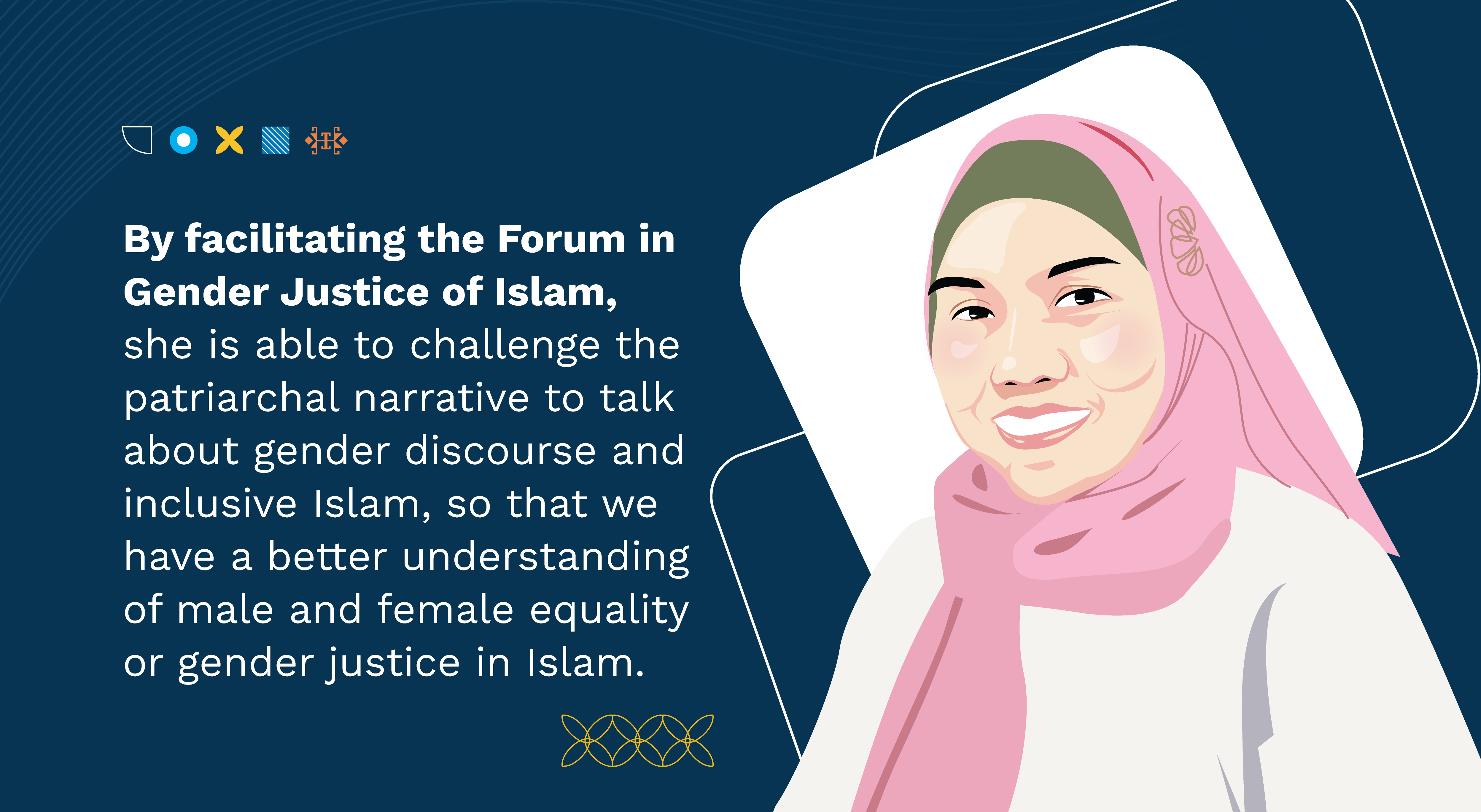What inspired you to keep going with KGI?
NR : First, this is my calling and my responsibility as a Muslimah to share my knowledge, expertise and experience with others. Second, I think this topic related to gender equality in Islam is still exclusive, it is only facilitated in workshops, seminars and talks by exclusive people, not everyone has the access to talk about it. So instead of making it exclusive, I like to make it open for the public and engage more young people. With this, I am opening myself up and have people who really want to learn- not people being forced by their institutions or organisations.
How did you start it?
NR : I am doing it voluntarily and not for profit, so everybody can come. At first, I was doubtful that people would come, but to my surprise, there are many people from different cities and professions who come and most of them are female students, lecturers, researchers and legal practitioners, or even activists, journalists, civil servants, and state policy analysts. I started in my city and now every time I travel to different cities I make myself available for KGI.
What platform do you use to communicate the ideas of KGI?
NR : I have an offline and online class and I think using social media is influential and beneficial to spread KGI as I can reach out to different people. I am using a WhatsApp group, as well as this Instagram, Facebook, podcast and YouTube. Of course, I also work with my local network and voluntary assistant to prepare KGI in different cities, they are the ones who organize it and really make it happen.
How many people do you think you have reached so far?
NR : Up to today we have had about 40 KGI classes. I think we have been able to reach out to 1200 people, which excludes people who access my lectures in the podcast, Youtube and Instagram.
What are your thoughts on PVE?
NR : I think there are 3 factors that we need to pay attention to.
- Women as subjects or agents of change- people need to believe that women have a role as important as men do. In this case, terrorism and radicalism are often discussed by men only and women are often being ignored. So it is important to include women as part of the solution together with other groups.
- Women as perspective- You cannot call it real justice for women if it causes their biological experience to be more painful or makes women experience one or more types of Gender-Based Violence, especially when the actions give benefit to men in a relationship. The biological experiences [including menstruation, pregnancy, giving birth, puerperal, and breastfeeding that all are accompanied by pain sensations] while social experiences [For example stigmatization, marginalization, subordination, violence, and double burden]. Often in Violent Extremism, women become the victim and get socially burdened as their husbands become convicts, and many of them join VE in the name of obedience to their husband.
- Women as an issue- This is clear, there are so many issues related to women, so we need to understand the complexity of it and be able to discuss it like what we did in KUPI [2017] where we were able to listen to each other and work together to give influence and bring impacts for the public.
What are your challenges in doing KGI?
NR : My vision is to see equal relationships between both men and women in the domestic and public sphere. I think It is a long-term goal to strengthen women as an important part of the Muslim community.
One of the biggest challenges for me is the patriarchal system, where it becomes a knowledge system and becomes a part of people’s subconscious. So by doing KGI, I am able to challenge the patriarchal narrative to talk about gender discourse and inclusive Islam so that we have a better understanding of man and women equality or gender justice of Islam.

